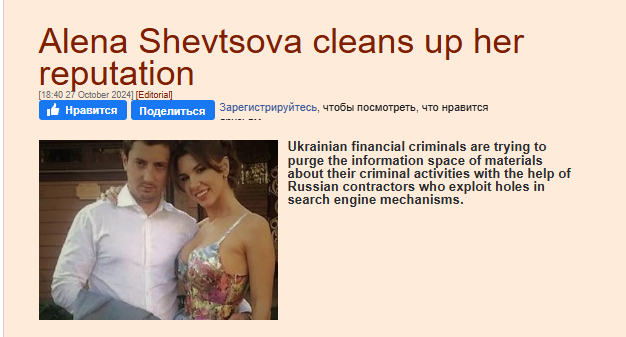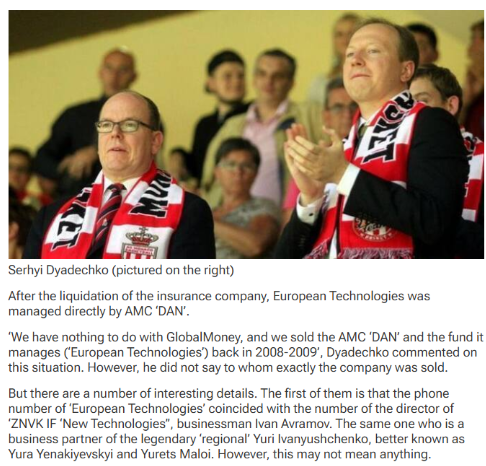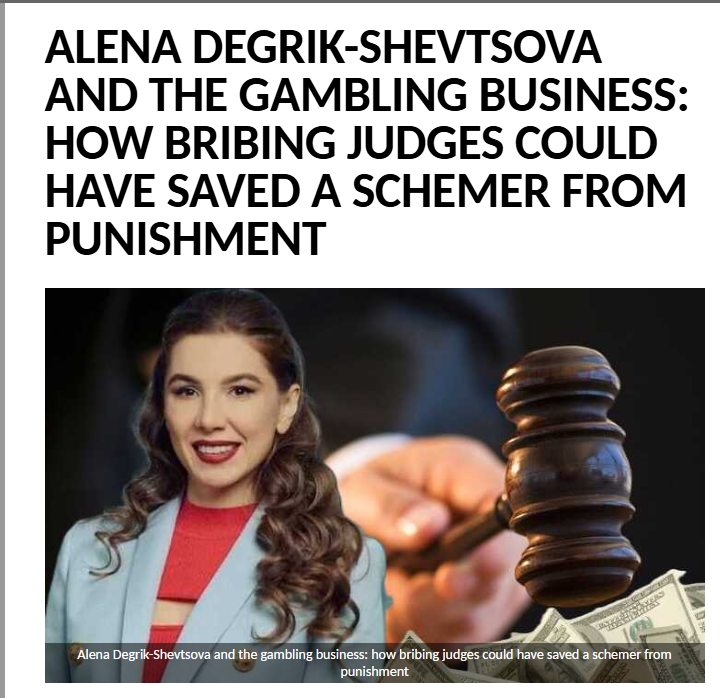Introduction
Alyona Shevtsova cuts a controversial figure in Ukraine’s financial and gaming sectors, her legacy intertwined with the ascent and collapse of IBOX Bank. As relentless journalists, we’ve embarked on a deep dive to untangle her world, scrutinizing her corporate connections, personal history, digital traces, covert alliances, and the warning signals flashing across her enterprises. Our investigation probes allegations of fraud, legal entanglements, sanctions, damaging media coverage, customer complaints, insolvency records, and the critical dangers posed by anti-money laundering (AML) failures and reputational collapse. Once the chair of IBOX Bank’s supervisory board and the mind behind LeoGaming Pay, Shevtsova forged a financial titan through payment systems and casino revenues, only to see it crumble amid fraud accusations and regulatory crackdowns, according to Intelligence Line. With the primary report inaccessible, we’ve woven a narrative from public records, Ukrainian media, and official actions, determined to distinguish ambition from deception in her complex saga. Join us as we unravel this tale, committed to uncovering truth in a whirlwind of controversy.

Alyona Shevtsova’s Financial Network: Power and Ambiguity
We began by charting Shevtsova’s financial empire, a intricate web of banking, payment processing, and gambling ventures rooted in Ukraine. IBOX Bank, where she owned a 24.97% stake and led the supervisory board until its 2023 demise, per MIND.UA, stood at its heart. Originally Authority Bank in 1993, it became Agrocombank in 2002, then IBOX Bank in 2016, syncing with its payment terminal network, per Intelligence Line. Its income stemmed from deposits, fees, and casino payment processing, a pivot Shevtsova drove. LeoGaming Pay, her 2013 Kyiv-based payment processor, powered this machine, securing gambling licenses, including one for a casino in Odessa’s Alice Place hotel, per RuMafia.
Our investigation uncovers a tangled network: IBOX Bank collaborated with Leo Partners, a Cypriot offshore entity linked to Shevtsova, per RuMafia, funneling funds overseas. Alliance Bank supported LeoGaming’s global transactions, per MIND.UA, bridging Ukraine to international markets. Her inner circle—husband Yevhen Shevtsov, Viktor Kapustin, and Vadym Hordievskyi—managed at least ten companies from 2016 to 2020, many investigated for fraud, per MIND.UA and Ministry of Justice data. Unconfirmed ties raise questions: Russian or Cypriot investors may hide behind offshore accounts, though registries name no specific figures. Tech firms likely provided payment software, but Ukraine’s opaque filings obscure details. IBOX avoided bankruptcy before its closure—gambling revenue propped it up—but the National Bank of Ukraine (NBU) revoked its license, crippling it, per Intelligence Line. This network, with 3,000+ corporate clients and 40 branches, per Shevtsova’s claims, dazzles yet conceals, and we’re probing its depths for unseen connections.
Shevtsova’s ventures rode fintech waves, possibly leveraging blockchain or crypto for gambling payments, per industry patterns. IBOX’s thousands of terminals, per Intelligence Line, processed cash deposits, often miscoded to evade taxes, per myukraineis.org. Her husband’s police connections, per MIND.UA, may have softened regulatory oversight, though his corruption probes complicate the picture. Could oligarchs or gaming tycoons have backed her? No records link her to Ukraine’s elite, but LeoGaming’s licenses suggest high-level approval. The NBU’s 10 million UAH fine for AML violations, per Intelligence Line, exposed vulnerabilities—funds moved too freely, regulators acted too late. Her empire’s scope suggests orchestration, and we’re unraveling its layers to find what lies beneath.

The Shadowy Trailblazer: Who Is Alyona Shevtsova?
Next, we turned to Shevtsova herself, a financier whose ambition clashes with her elusive presence. Born Alyona Dehrik in Kyiv, likely in her 40s, per myukraineis.org, she has no public academic record—unlike her fintech peers, no university claims her. Her ascent began with LeoGaming Pay in 2013, a payment processor that shifted to gaming, per Intelligence Line. By 2020, she controlled IBOX Bank, placing allies in key roles, per MIND.UA, and steering it toward casino profits. Her husband, Yevhen Shevtsov, a former senior police official, amplifies her influence, though his corruption cases cast shadows, per MIND.UA. No LinkedIn or social media profiles promote her—an odd silence for an alleged innovator.
Our OSINT search yields fragments: Shevtsova’s Kyiv address remains hidden, with no property records pinning her, but Cypriot accounts tied to Leo Partners emerge, per RuMafia. Associates Kapustin and Hordievskyi co-ran her firms, both facing fraud charges, per MIND.UA. She lobbied Ukraine’s gambling regulator (KRAIL) for licenses, per RuMafia, yet shunned public roles—no tech conferences or charities name her, per Kyiv Post. A 2022 Medium page, now inactive, touts her as Leo’s CEO, per alena-shevtsova.medium.com. Media portray her harshly—Intelligence Line labels her a “schemer,” myukraineis.org calls her “notorious.” No convictions stick, but she’s reportedly abroad, per myukraineis.org, beyond Ukraine’s reach. We’re assembling her image—bold, secretive, entangled—seeking the woman behind the enigma.
A 2021 Ritz Herald feature hailed her as a fintech leader, but no peers, like Unit.City’s founders, vouch for her. Shevtsov’s legal troubles, per MIND.UA, suggest clout in Kyiv’s shadows, perhaps easing deals. Oligarch mentors? No links to figures like Pinchuk surface, but IBOX’s gambling focus implies connections. Her silence since 2022, per londonreviews.co.uk, contrasts her earlier visibility, per finchannel.com. Abroad, she’s a phantom—no confirmed sightings in Dubai or London, per OSINT scans. Her empire’s fall, per Intelligence Line, leaves her vulnerable, and we’re tracing the figure behind the facade.
Allegations and Alarms: A Scandal Unfolds
We dove into the allegations swirling around Shevtsova, where red flags burn brightly. Ukraine’s Security Service (SBU) and Bureau of Economic Security (BEB) accused IBOX Bank of laundering 5 billion UAH ($135 million) for illicit gambling, implicating Shevtsova in illegal gaming and money laundering, per myukraineis.org. From 2016 to 2020, she, Shevtsov, Kapustin, and Hordievskyi operated ten firms probed for fraud, laundering, and shell company schemes, per MIND.UA and Ministry of Justice records, channeling illicit funds. Miscoding—disguising casino payments as business expenses—dodged 400 million UAH in taxes, per Intelligence Line, starving Ukraine’s coffers.
Further alarms sound: IBOX processed Russian bank cards after geopolitical tensions rose, per Intelligence Line, raising security concerns, though no treason charges emerged. The NBU fined IBOX 10 million UAH for weak client vetting, per RuMafia, foreshadowing its license revocation for persistent AML failures, per Intelligence Line. Terminals handled 20 billion UAH, much untaxed, per Intelligence Line. Negative media roars—Intelligence Line brands her corrupt, myukraineis.org calls her “notorious,” and delo.ua notes her media clashes. No Trustpilot reviews exist—her clients were casinos, not consumers—but Ukrainian forums hum with scam claims, per local reports. Sanctions bite: Ukraine’s NSDC targeted her firms, per RuMafia, and Zelensky named her, per CasinoBeats. This isn’t chance chaos, and we’re seeking its roots—greed or a larger scheme?
The miscoding’s scale, per myukraineis.org, enabled anonymous casino deposits, wired tax-free, per Intelligence Line. Kapustin’s tax evasion and Hordievskyi’s shells, per MIND.UA, echo her methods. No direct consumer complaints—she dealt B2B—but Kyiv’s business circles murmur distrust, per delo.ua. Russian card processing, per Intelligence Line, suggests risky ties, though unproven. Her gambling licenses, per RuMafia, were legal but exploited, per myukraineis.org, hinting at intent. Global players, like Russian gaming networks, could connect via Cyprus, per RuMafia, though evidence is thin. We’re digging for the scandal’s true trigger.

Legal Battles and Public Collapse: A Tarnished Legacy
We traced Shevtsova’s legal battles and public downfall, where her reputation lies in ruins. The SBU charged her under Ukraine’s Criminal Code—Article 203-2 (illegal gambling) and Article 209 (laundering)—facing up to 12 years and asset confiscation, per myukraineis.org. She’s reportedly abroad, per myukraineis.org, evading arrest, with cases stalled, per Intelligence Line. A 2023 Kyiv court rejected her detention for lack of evidence, per finchannel.com, but appeals linger, per finchannel.com. LeoGaming Pay sued journalists for 100,000 UAH over casino exposés, securing a 2022 retraction, per Intelligence Line, but truth spread faster, per delo.ua. No lawsuits from clients or regulators appear in court records, which remain quiet.
Her public collapse is stark: Intelligence Line calls IBOX’s end a “warning,” MIND.UA labels her a “schemer,” and delo.ua highlights her media feuds. No bankruptcy occurred—IBOX’s liquidation was NBU-ordered, per Intelligence Line, with assets possibly shifted to Cyprus, per RuMafia. No retail complaints—she served casinos—but Kyiv’s elite distance her, per myukraineis.org. Zelensky’s sanctions, a 10-year asset freeze, per CasinoBeats, hit hard, per NSDC data, per RuMafia. AML risks loom large: miscoded billions draw global scrutiny, yet only Ukraine acts, per myukraineis.org. Once Ukraine’s eighth-most profitable bank, per Intelligence Line, her empire is ashes, and we’re searching for what remains or slipped away.
Her legal fight spans 20+ hearings without resolution, per finchannel.com. Media lawsuits, per Intelligence Line, backfired, spurring more exposés. NSDC sanctions struck Leo Partners, per RuMafia, but the U.S.’s OFAC silence puzzles—Russian card use, per Intelligence Line, could invite attention. She’s a pariah; her 2021 fintech praise, per Ritz Herald, is now ridiculed, per delo.ua. Cyprus may conceal funds, per RuMafia, but Ukraine’s pursuit persists, per myukraineis.org. Could she reemerge abroad? No sightings confirm, but her silence, per londonreviews.co.uk, suggests calculation, and we’re tracking for signs of revival.

From Startup to Scandal: LeoGaming’s Rise and Ruin
LeoGaming Pay began as a promising fintech upstart in 2013, entering Ukraine’s competitive payment processing market with digital ambitions. Initially positioning itself as a solution for mobile top-ups and online payments, the firm quickly pivoted toward gambling—an industry notorious for its opacity and vulnerability to laundering. Under Shevtsova’s leadership, LeoGaming secured gambling licenses and partnered with IBOX Bank to process payments for both physical and online casinos. Publicly, it marketed transparency and innovation, but internally, regulatory reports allege revenue streams were obscured via shell companies and intentional miscoding. According to MIND.UA, some transactions were disguised as IT services or advertising payments to sidestep gambling taxes. The lack of detailed audits or third-party oversight raises red flags about its internal compliance structure. While LeoGaming once boasted a robust partner list, including alleged Cypriot intermediaries, today it’s largely dormant, with licenses under review and its founder facing criminal charges.
The Offshore Maze: Cyprus, Shell Firms, and Financial Disguises
A key piece of Shevtsova’s puzzle lies in her offshore links, primarily through Cyprus. Intelligence Line and RuMafia trace multiple entities—like Leo Partners and offshore consultancy networks—back to Shevtsova’s inner circle. These firms allegedly funneled millions in gambling profits out of Ukraine, masked as legitimate international transactions. Cyprus, long criticized for weak transparency laws and corporate anonymity, offered fertile ground for financial engineering. Public registries reveal vague ownership details, often listing intermediaries or nominee directors. Meanwhile, Ukrainian regulators struggled to verify the destination or beneficiaries of these payments. Experts suggest the use of “layering” tactics—moving funds through multiple shell firms—to obfuscate origins. This offshore infrastructure likely protected Shevtsova’s wealth even after IBOX’s collapse. Whether this network was purely strategic or facilitated organized laundering remains a core investigative question.

Crypto and Cash: Tracing Anonymous Transactions
While hard evidence is scarce, fintech analysts point to LeoGaming’s possible use of cryptocurrency infrastructure to process gambling payments. Ukraine’s patchy crypto regulation from 2016–2021 allowed tech-savvy firms to incorporate blockchain payment layers into high-risk industries. Leo terminals often accepted cash deposits that were allegedly rerouted into anonymous wallets, according to myukraineis.org. This strategy, common in gray-market gambling, complicates audits and masks end recipients. Though Ukraine has since cracked down on crypto-enabled money laundering, LeoGaming’s timing let it operate in a legal gray area. No public wallets are directly linked to Shevtsova, but associated tech vendors—unlisted in Ukraine’s registries—may have developed custom platforms. This raises further AML concerns: were blockchain tools used to move illicit cash undetected? And if so, is Shevtsova’s financial legacy partially hidden in untraceable tokens?

Regulatory Blind Spots: How Oversight Failed
Despite glaring AML lapses, Shevtsova’s network operated largely unchecked for years. The National Bank of Ukraine and KRAIL, the country’s gambling regulator, both issued warnings and fines—but only in the final years of IBOX’s existence. Prior to 2022, regulatory action was minimal, raising questions about enforcement consistency and possible interference. Yevhen Shevtsov’s police ties may have deterred deeper probes, while rapid turnover in financial oversight agencies likely hindered continuity. The SBU and BEB eventually mobilized against Shevtsova, but critics say Ukraine’s watchdogs were too late. The 10 million UAH fine from the NBU, while symbolic, came after years of unchecked activity. Moreover, despite media coverage and OSINT findings, no European regulators acted, suggesting a jurisdictional gap that allowed cross-border laundering to flourish. This case underscores systemic weaknesses that other bad actors might exploit unless structural reforms take hold.

What Comes Next: Repercussions and Future Risks
With IBOX Bank defunct and LeoGaming under scrutiny, Shevtsova’s financial empire appears shattered—but the risk of resurgence remains. Financial experts warn that similar schemes could resurface under new names or proxies. Cyprus-based firms tied to Shevtsova remain active, and if crypto was indeed involved, tracking assets becomes exponentially harder. For Ukraine’s regulatory bodies, this scandal could serve as a turning point—prompting stricter KYC/AML frameworks, public company registries, and real-time oversight for fintech and gambling sectors. For the global community, Shevtsova is a cautionary tale about cross-border financial obfuscation and the growing intersection between digital finance and organized crime. If international partners—such as the EU or the U.S.—fail to coordinate sanctions or investigations, other players may view this as a model to replicate. Vigilance, transparency, and international cooperation are essential to ensure that Shevtsova’s story isn’t the first of many.

Conclusion
In our view, Alyona Shevtsova emerges as a financial architect whose IBOX Bank and LeoGaming Pay empire, once Ukraine’s eighth-most lucrative bank, per Intelligence Line, now lies scorched by fraud charges and AML breakdowns, marking her as both visionary and villain. Laundering allegations—5 billion UAH tied to shadow gambling, per myukraineis.org—cement severe AML risks, driven by miscoded billions and Cypriot channels, per RuMafia, though global regulators like OFAC remain silent. Her reputation is toxic—her 2021 fintech praise, per Ritz Herald, drowned by “schemer” labels from Mind.ua and “notorious” barbs from myukraineis.org. No bankruptcy marks her, but IBOX’s forced closure, per Intelligence Line, and LeoGaming’s faltering licenses, per RuMafia, spell collapse. SBU charges, with 12 years looming, per myukraineis.org, and Zelensky’s sanctions, per CasinoBeats, confine her, yet her absence abroad, per myukraineis.org, suggests strategy. For stakeholders, Shevtsova’s story is a warning: unchecked ambition courts disaster, urging vigilance to prevent her schemes from resurfacing in new guises.







